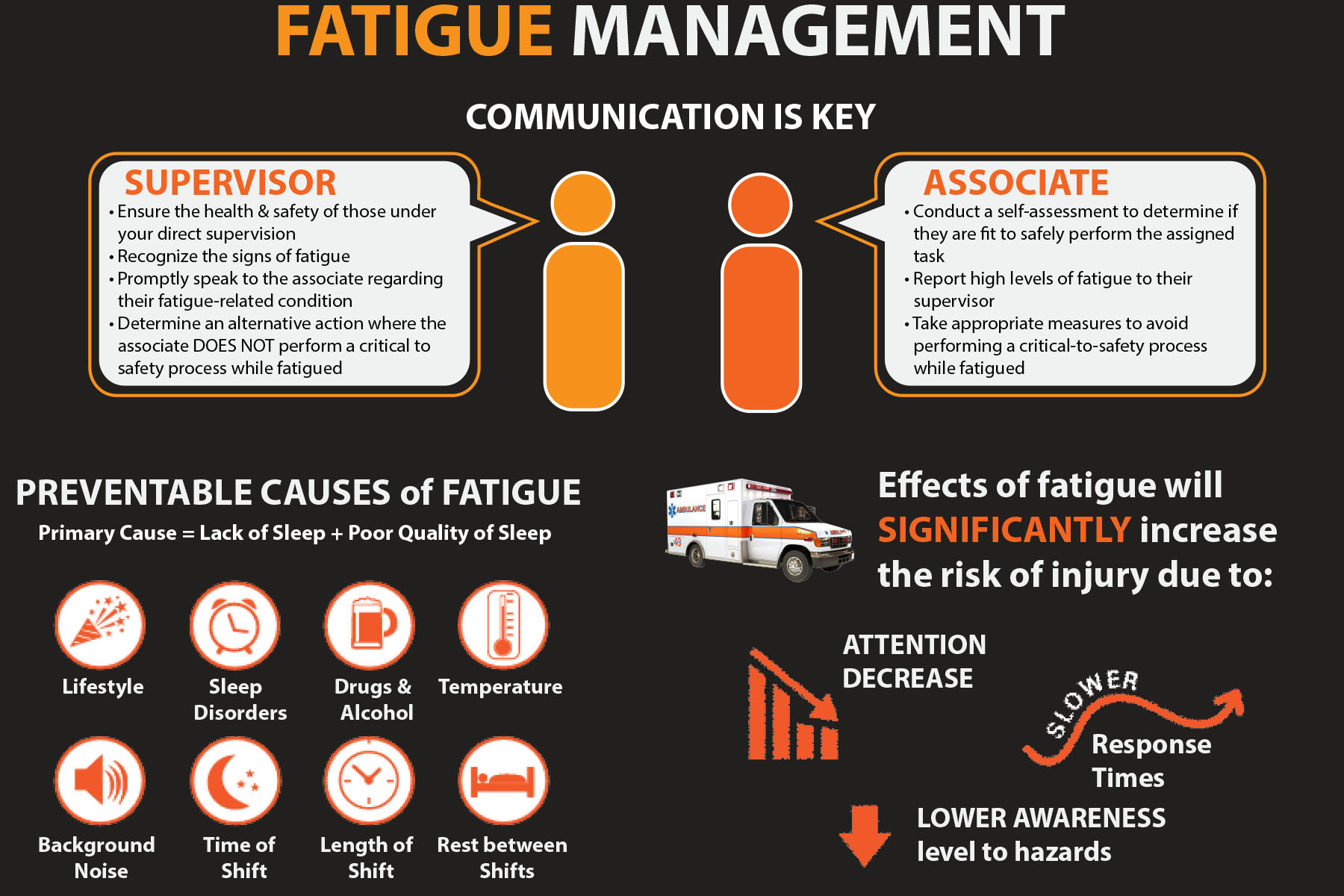Policy Key Points

The purpose of this policy is to establish the requirements for managing fatigue. It is intended that this policy will reduce the risk of fatigue-related injuries and incidents in the workplace.
Yaskawa America, Inc. is committed to providing and maintaining safe systems of work for all our associates, including those whose work involves shifts work, extended hours or on-call arrangements. Yaskawa’s operations are sometimes undertaken outside ordinary working hours. Activities often involve shift work, extended hours and on-call arrangements. These working arrangements may contribute to fatigue if not managed appropriately.
Fatigue can be caused by both work and non-work related factors.
Non-work factors include family responsibilities, social activities, health issues—such as sleep disorders— study commitments and sporting commitments.
Work factors include shift work— especially night shift— and working extended hours. While everyone doesn’t respond to fatigue in the same way, fatigue can cause reduced concentration, impaired coordination, compromised judgement and slower reaction times, which ultimately increase the risk of incidents and injuries.
You must notify your supervisor if you are experiencing any signs of fatigue.
The purpose of this policy is to establish the requirements for managing fatigue. It is intended that this policy will reduce the risk of fatigue-related injuries and incidents in the workplace.
Yaskawa America, Inc. is committed to providing and maintaining safe systems of work for all our associates, including those whose work involves shifts work, extended hours or on-call arrangements. Yaskawa’s operations are sometimes undertaken outside ordinary working hours. Activities often involve shift work, extended hours and on-call arrangements. These working arrangements may contribute to fatigue if not managed appropriately.
Fatigue can be caused by both work and non-work related factors. Non-work factors include family responsibilities, social activities, health issues—such as sleep disorders— study commitments and sporting commitments. Work factors include shift work— especially night shift— and working extended hours. While everyone doesn’t respond to fatigue in the same way, fatigue can cause reduced concentration, impaired coordination, compromised judgement and slower reaction times, which ultimately increase the risk of incidents and injuries.
This policy applies to all Yaskawa associates - especially those whose work involves shift work, extended hours, and on-call arrangements.
All associates have the responsibility to ensure that fatigue does not impact the safety, health, and well-being of themselves and others.
Breaching this policy may result in an injury to yourself or others. Breaches of this policy may result in disciplinary action being initiated in accordance with Yaskawa America, Inc.’s discipline policy.
All associates shall be provided with training related to this policy including preventing, recognizing, and managing fatigue.
| Record | Retained by | Retention Time |
|---|---|---|
| Rev # | Description | Release Date | Approved by |
|---|---|---|---|
| 0 | Initial Release | 2/2/2023 | Thurwanger |
| Review Date | Reviewed by | Changes Required (Yes/No) | Revision # if updated |
|---|---|---|---|
| 1/16/2024 | Thurwanger | No | |
| 1/21/2025 | Thurwanger | No | |
| 2/9/2026 | Thurwanger | No | |
Policy Video
Fatigue can:
There are approximately 11 different signs or “symptoms” of fatigue, and they can include mental, physical or subjective states. If you notice any of these signs, you likely are suffering from fatigue. It could be acute – a “one-off” related to workplace or home stress or a pressing deadline or project – or chronic, which means that you likely are suffering from a sleep disorder, prolonged periods of work and extended periods of stress.
Notify your supervisor if you are experiencing any of these signs of fatigue - especially if you are expecting to perform any higher risk activities, such as: